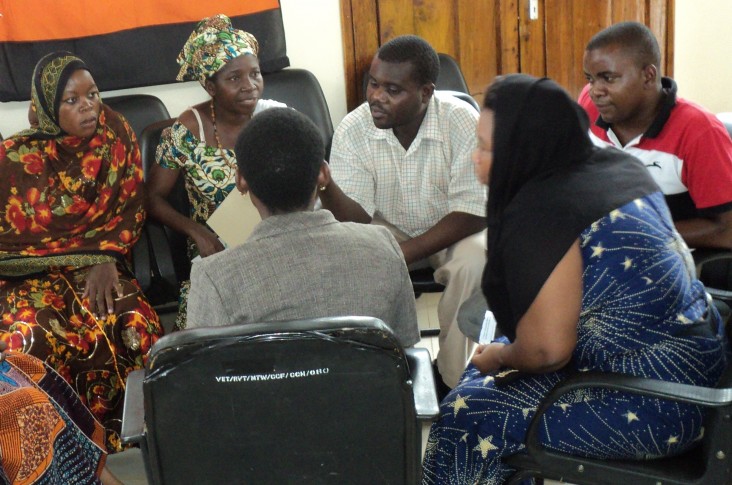Speeches Shim

The Government of Tanzania has made a commitment, both to its people and to the international community, to improve democratic governance. Even though Tanzania still ranks above neighboring countries in terms of transparency, accountability, and civil rights, rapid democratic declines in recent years pose an ongoing concern. USAID responds to this reality with programs that build on previous work to counter closing civic and political space, bolster freedom of expression, improve the advocacy and communication capabilities of local organizations, promote transparent and accountable systems free from corruption, and strengthen human rights among vulnerable populations.
These activities aim to achieve four sub-purposes: 1) improving the ability of targeted media and civil society organizations (CSOs) to provide more accurate and impartial information; 2) strengthening partner CSO capacities in targeted issue areas; 3) enriching platforms for dialogue that promote inclusive civic participation; and 4) improving citizen participation and oversight of elections and political processes. Additionally, USAID activities promote awareness of ethics regulations and target greater participation of women and youth in political processes.
Together, these efforts encourage citizen engagement while increasing public awareness of the roles, responsibilities, and actions of government. Furthermore, these activities advance partnerships with USAID efforts across sectors based on complementary skills and resources, common objectives, and geographic focus in order to maximize impact. This integrated approach is further strengthened by cross-sectoral collaboration to improve gender equality and empower women and youth.
Challenges
Improving governance in Tanzania is constrained by an increasingly powerful executive branch, closing civic space, violations of human rights, lack of political competition, a still-emerging civil society, limited government capacity, low public accountability, and barriers to accessing information. Women and youth are particularly disadvantaged in these areas. Challenges include:
- Low quality of public services including health, education, and water, in addition to a lack of institutional capacity.
- Limited government accountability and a lack of public demand for improvement.
- Widespread corruption and public sector inefficiencies.
- Diminished checks and balances resulting from an imbalance of power between branches of government, with civil servants and elected officials tied to central government patronage rather than citizen constituents.
Impact
- CSO partners worked with various stakeholders and employed a variety of mechanisms to advance rights issues, including strategic litigation, productive engagement of government decision-makers, and participation in public consultation processes.
- Coalition member CSOs participated in review processes for several high-profile bills (including the Political Parties Act, NGO Act, Statistics Act, and Companies Act) in Parliament. Coalition members coordinated efforts and used their comparative advantages. Several of their recommendations were incorporated into the resulting laws, improving inclusivity.
- Leadership structures and women and youth units within both ruling and oppositions parties have committed to improving internal governance and working to increase the diversity of both candidates and internal party decision-makers.
- Over 200 professional journalists in nine regions have received basic and intermediate training on how to produce high-quality local coverage, improve websites and social media channels, increase women and youth voices in their programming as well as improve the quality and impartiality of their reports.
- Established partnerships with the School of Journalism and Mass Communication, University of Dar es Salaam, the Saint Augustin University of Tanzania in Mwanza, and the Zanzibar Mass Media and Journalism College to support the training of over 600 journalism students through intensive six-week-long, hands-on radio training to equip them with practical skills for future careers in the media.
RELATED FACT SHEETS
Overview: Democracy, Human Rights, and Governance
STORIES
Tanzania's Young Leaders Bring Innovation to Development Challenges


Comment
Make a general inquiry or suggest an improvement.